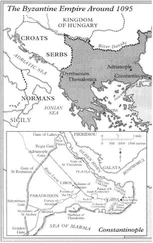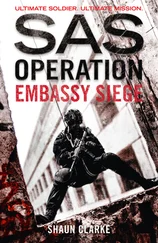Tom Harper - Siege of Heaven
Здесь есть возможность читать онлайн «Tom Harper - Siege of Heaven» весь текст электронной книги совершенно бесплатно (целиком полную версию без сокращений). В некоторых случаях можно слушать аудио, скачать через торрент в формате fb2 и присутствует краткое содержание. Жанр: Исторический детектив, на английском языке. Описание произведения, (предисловие) а так же отзывы посетителей доступны на портале библиотеки ЛибКат.
- Название:Siege of Heaven
- Автор:
- Жанр:
- Год:неизвестен
- ISBN:нет данных
- Рейтинг книги:5 / 5. Голосов: 1
-
Избранное:Добавить в избранное
- Отзывы:
-
Ваша оценка:
- 100
- 1
- 2
- 3
- 4
- 5
Siege of Heaven: краткое содержание, описание и аннотация
Предлагаем к чтению аннотацию, описание, краткое содержание или предисловие (зависит от того, что написал сам автор книги «Siege of Heaven»). Если вы не нашли необходимую информацию о книге — напишите в комментариях, мы постараемся отыскать её.
Siege of Heaven — читать онлайн бесплатно полную книгу (весь текст) целиком
Ниже представлен текст книги, разбитый по страницам. Система сохранения места последней прочитанной страницы, позволяет с удобством читать онлайн бесплатно книгу «Siege of Heaven», без необходимости каждый раз заново искать на чём Вы остановились. Поставьте закладку, и сможете в любой момент перейти на страницу, на которой закончили чтение.
Интервал:
Закладка:
‘Who does he wish to make this alliance against?’
Bilal’s voice was louder than the caliph’s, and the vaulted roof spun his words about so that they seemed to come from all around us.
‘Against the Turks of Palestine.’
A great agitation spread through the crowd of courtiers, as though the surrounding forest had come alive in a breeze. The caliph let it build unchecked for a few moments, then hushed it with an unseen gesture.
‘I have heard rumours of a mighty Christian army,’ he announced. ‘Not Greeks or Rum , but Franj . What do you know of them?’
‘They have come from the west to liberate the holy city of Jerusalem.’
‘They are the emperor’s mercenaries?’
Nikephoros hesitated. ‘His allies.’
The caliph sat down, and let the full radiance of the invisible sun bathe his face. If I squinted, I could just make out his face beneath a white turban. His features were soft, though held fast by a furious effort of concentration. As I had thought, he seemed very young — not much past twenty.
‘If the emperor Alexios has so many allies, why does he seek our help?’
‘Because we have a common enemy.’ Nikephoros rocked forward on his knees, and I wondered if they were beginning to ache as much as mine. Perhaps that was why diplomats wore such thick robes. ‘Because the Turks have stolen their land equally from both of us. Our army is poised at Antioch to strike south; if the Fatimids could come up from Egypt, we would crush them between us.’
This time there was no murmuring from the crowd. All waited to see what the caliph would say.
‘It is easy to speak of crushing the Turks — and far harder to achieve it. They have the full power of the court of Baghdad behind them.’
‘And we have broken it,’ said Nikephoros urgently. ‘You have heard of Kerbogha the Terrible? Two months ago the Franks routed him in battle at Antioch. Palestine is open for the taking.’
The caliph’s face remained impassive — too impassive, I felt, for someone hearing this news for the first time.
‘If Palestine is laid open, why not take it yourself? Does the emperor always seek allies in victory?’
‘All Christians should abhor war and unnecessary killing — as indeed do faithful Muslims.’
‘ Fight in God’s cause against those who fight you, but do not overreach yourself, for that is hateful to God ,’ the caliph murmured.
‘The stronger our army, the less we will have to use it.’
‘But how, then, will you reward your allies?’
There was an undisguised sharpness in the question. Nikephoros considered his answer carefully.
‘The emperor has no claim on Palestine. The Frankish army want only Jerusalem, and enough land about it to sustain themselves. For the rest, as much as we conquer can be yours.’
The caliph clasped his hands together and pressed them against his chin. He looked down on us from his height, while the crowded nobles around us craned forward. I could not look at the caliph: my eyes ached from the nimbus of light that surrounded him, and the heavy robes pressed down on me like lead.
‘The emperor’s friendship is a prize for any man,’ he declared. ‘But an alliance for war cannot be entered into lightly or in haste. I will think on your proposal, and give you my answer as soon as it is decided. In the meantime, you will stay in the palace. As. .’ There was a pause in the translation as Bilal — unusually — struggled to find a word.
‘As my guests.’
‘How was the audience?’ asked Aelfric.
I unpeeled my borrowed robe and threw it over a wooden stool. In the adjacent room, I could see Nikephoros’ slaves pulling off his opulent lorum and dalmatica, leaving only a loose white smock beneath. I was desperate to release some of the tension of the audience, but it was not easy with a company of Bilal’s African guards stationed outside our door. And my head still ached.
I shrugged. ‘The caliph saw us in person — he didn’t defer us with some string of lesser officials. I suppose that was good.’
‘Are you so dazzled by royalty, Demetrios?’
I looked up wearily. Nikephoros had left his attendants folding his garments and had come through into our room. He was sipping a cup of sherbet, though it did nothing to sweeten the look on his face.
‘The king is not always the most powerful man at court,’ he said, and I remembered that in Constantinople he had been of that faction that sought to make emperors the tools of their officials. ‘The caliph has barely come of age.’
‘He seemed well enough in command of his court to me.’
‘Because his court wanted you to think so. There is only one man who commands the court, and it is not the caliph.’
‘Who, then?’
‘His vizier, al-Afdal. Nothing happens except by his authority.’ There was genuine respect in Nikephoros’ words.
‘Was he there at the audience?’
‘No. But I do not doubt he will have been watching and listening. He flatters us by granting an audience with the caliph, but it is only the first move of a long game. Knowledge is the root of all diplomacy, no less than war. At the moment, our positions are almost equal — we know as much as he does, perhaps more on some matters. But now he will lock us away — with silk cords and golden keys, of course — and starve us of information, while he learns everything he can and watches how matters develop. He will wait until the situation has swung to his advantage before he seriously negotiates with us.’
‘And how are we to know what is in the emperor’s interest then?’
Nikephoros gave a savage grin, perhaps the first time I had seen him happy. ‘That is the game.’
11
It was not a game I wanted to play, but I no longer had any choice — if, indeed, I ever had. We lived almost entirely in the three rooms we had been allocated, and wanted for nothing except freedom. After three days we were all like caged beasts alternately sulking in corners and snarling at each other; after a fortnight we had learned to contain our passions enough to feign peace. Occasionally Nikephoros would have me write a dispatch to the emperor, emphasising the Fatimids’ hospitality and his sincere hopes for an honest alliance with them; for the rest of the time, I sat by the window, trying not to think about Anna and Sigurd, and observed the comings and goings of the palace. At first it was merely something to watch, a small corner of movement in an otherwise still existence, but gradually I began to notice patterns: the different attires and the deference each man drew, who bowed and made way for whom, which hours were busy and which quiet. Most of all, I noticed the guards. There were a great many of them: Africans like Bilal, Turkish archers, Armenian cavalrymen, and brownskinned desert-dwellers who carried short, stabbing spears. As with the Franks, or even the emperor’s armies, there seemed to be a great rivalry between the different races — and it seemed to be the Africans who suffered worst. Each time a detachment of Turks or Armenians marched through the courtyard, the Africans were forced out of the way, and if they were not quick enough they often suffered kicks and blows. I mentioned it once to Nikephoros, and drew a predictably condescending response.
‘Of course they beat the Africans — they are the least of races, savages worse than Franks. Why do you think they appointed them to guard us, if not to demean us? Is that all you’ve noticed?’
I hesitated, unwilling to risk drawing his scorn again.
‘Which race do you see least?’
‘The Armenians?’
‘Exactly. The vizier, al-Afdal, is an Armenian, and he rests his authority on a private army of his countrymen. What does that tell you?’
Читать дальшеИнтервал:
Закладка:
Похожие книги на «Siege of Heaven»
Представляем Вашему вниманию похожие книги на «Siege of Heaven» списком для выбора. Мы отобрали схожую по названию и смыслу литературу в надежде предоставить читателям больше вариантов отыскать новые, интересные, ещё непрочитанные произведения.
Обсуждение, отзывы о книге «Siege of Heaven» и просто собственные мнения читателей. Оставьте ваши комментарии, напишите, что Вы думаете о произведении, его смысле или главных героях. Укажите что конкретно понравилось, а что нет, и почему Вы так считаете.










